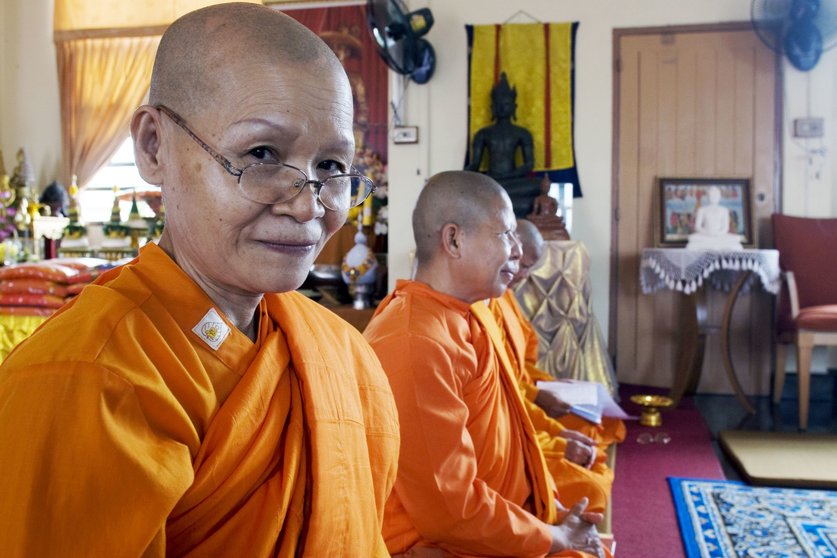RELIGION
The rebel female Buddhist monks of Thailand
Canela Bangkok, Feb 19 (EFE).- Although Thailand's Buddhist authorities do not allow women to be ordained as monks, more than 100 female monks are claiming their right to continue the tradition of female Buddhist monks started by Buddha himself over 2,500 years ago.

Gaspar Ruiz-Canela
Bangkok, Feb 19 (EFE).- Although Thailand's Buddhist authorities do not allow women to be ordained as monks, more than 100 female monks are claiming their right to continue the tradition of female Buddhist monks started by Buddha himself over 2,500 years ago.
These female Buddhist monks, known as "bhikkhunis", with their orange robes and shaved heads and eyebrows, venture out at dawn to ask for food and do not eat after midday, like other monks or "bhikkus".
Despite being called "Buddha's Daughters" and enjoying growing support in Thai society, the governing Sangha Supreme Council refuses to recognize female Buddhist orders in Thailand.
In general, female monks can live their lives somewhat normally as this group is considered unregulated, not illegal, but they say they suffer from discrimination and cannot have their religious status acknowledged on their identity cards.
On Dec. 9, a group of female monks were denied entry to the Royal Palace to pay their respects to the body of King Bhumibol Adulyadej due to this very lack of official recognition.
The Buddhist hierarchy recognizes a type of unordained nun, known in Thai as "mae chi", who dresses in white, follows a smaller number of precepts and is not allowed to officiate ceremonies, but not the bhikkhunis.
Dhammananda, a writer and former university professor of Buddhism, was ordained in 2001 as a bhikkhuni of the Theravada tradition in Sri Lanka, making her the first Thai woman to do so.
"We are not illegal, but we do not have a legal status," Dhammananda said on Feb. 15 at a conference at the Foreign Correspondents' Club of Thailand in Bangkok.
The monk explained that her congregation follows the teachings contained in the Tipitaka sacred texts and adheres to the mandate of the Buddha, who established the four pillars of Buddhism: "bhikkhus", "bhikkhunis", lay men and lay women.
However, the Sangha Supreme Council argues that female monastic orders never entered Thailand and also that it is not possible to recognize them officially on Thai soil from a regulatory point of view.
The Council refers to an order issued in 1928 by the Supreme Patriarch, the head of the order of Buddhist monks in Thailand, which forbids the ordination of women as monks, and which has been followed ever since.








